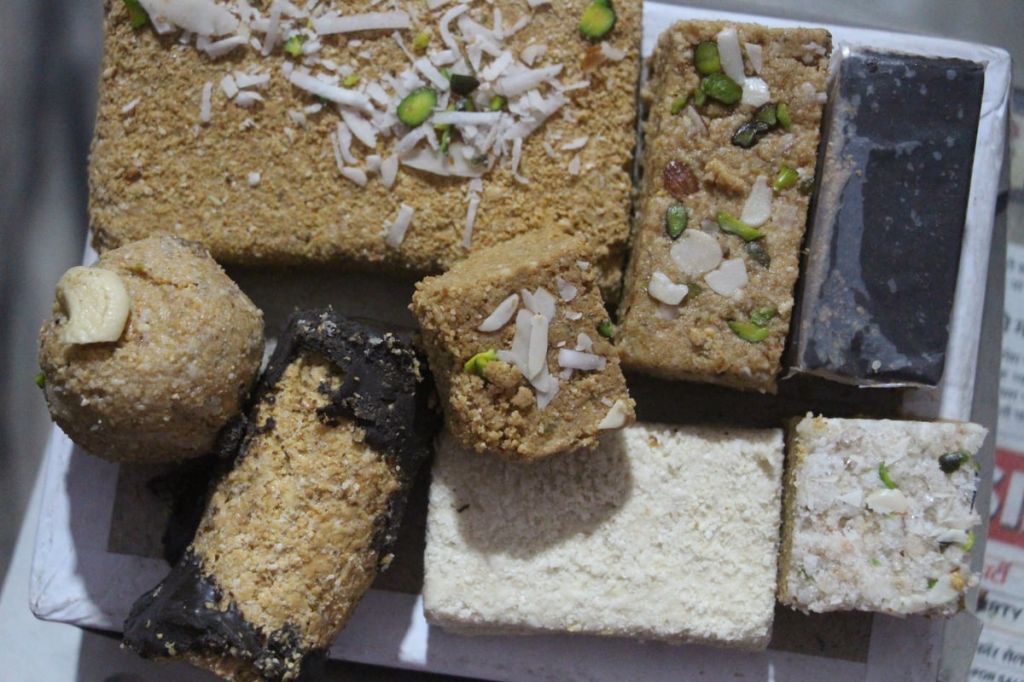
Indore (Madhya Pradesh): Come winter and people of the city start savouring a number of culinary delights specific to the season. One of these delights that stands out for its unique taste, texture and smell is Gajak. A winter staple made of jaggery, sesame seeds and spices Gajak, the most liked winter sweet has made its customary advent this year too. However, the winter delicacy has observed a price rise of 40% in the past four years.
The most sold Papadi Gajak was priced at Rs 320-340 per kg last year and this year the cost has shot up to Rs 350-380 per kg. “As the mercury goes down, the gajak craze in the city increases and people start purchasing Gajak on a large scale.
However, in the past few years (post-Covid) the price of the sweet has increased significantly but this has not affected the demand that has kept increasing,” said Anuj Jain of Jain Shree Sweets.
The estimated business of Gajak in the city is more than Rs 200 crore every season. The reason behind this continuous increase in price is the extreme increase in rates of raw materials and the labour cost which majorly comes from Morena district or from Uttar Pradesh and neighbouring states.
SALE OF GAJAK IN INDORE
The estimated business of Gajak in the city is more than Rs 200 crore every season. The season starts from Diwali and ends during Sankranti. The most sold gajak of the city is Patti Thal Gajak. On an average it is estimated that 100 kg to 1,000 kgs of Gajak is sold every day at each shop depending on their production and scale of business. At present, majorly Gajak prices range from Rs 400/kg to Rs 900/kg.
NEW TYPES OF GAJAK IN MARKET
Cranberry Gajak Walnut Gajak Kesar Gajak Gajak Puffs Chocolate Gajak Dry Fruit Gajak
HOW IS GAJAK MADE?
Gajak is still made using traditional methods that involve cooking sesame seeds and jaggery over low heat until they combine into a thick paste, which is then cooled and cut into pieces. The production of gajak has also become a source of livelihood for many people.
BENEFITS OF GAJAK
* Energy boost: Gajak is rich in nutrients like calcium, iron, magnesium, and zinc, which can help combat fatigue and enhance energy levels.
* Warmth: The ingredients in gajak are thought to generate warmth within the body, which helps cope with cold weather.
* Digestive support: Jaggery in gajak helps with digestion.
* Heart health: Sesame seeds contain healthy fats that are good for heart health.
* Bone health: Sesame can make bones strong and reduce the chances of osteoporosis.
* Mood enhancement: The sweet and nutty flavours of gajak can act as mood enhancers.
* Immunity-boosting potential
Gajak fans spread far and wide
This sweet has fans not only across the country but also in foreign countries.“The market of Gajak is very wide and people are sending it to their relatives and acquaintances living abroad. Gajak made in Indore is not only sold locally but is also sent to other cities nationwide,” said Surendra Rathore a trader and manufacturer of Gajak in Chhatribagh area. Gajak is sent to countries like America, England, Australia, Dubai and other countries also.